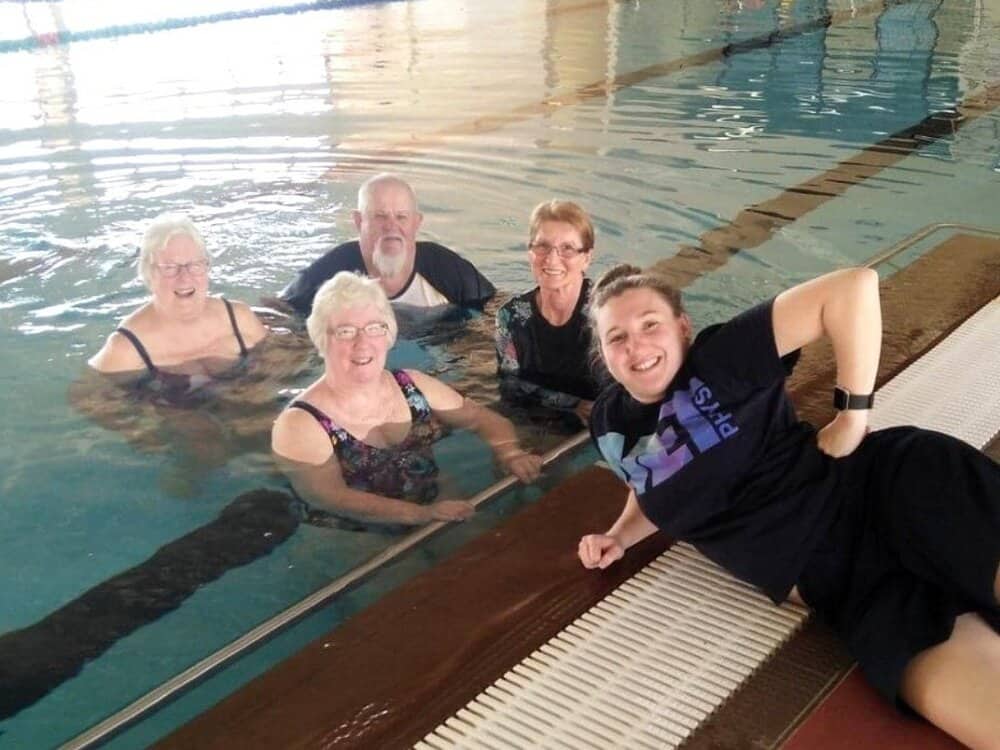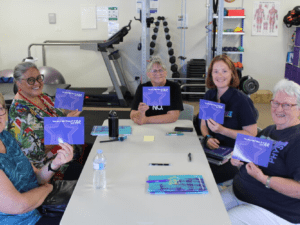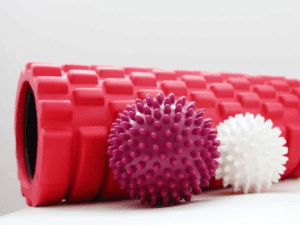The answer is YES! Exercise has been found to improve independence, quality of life, as well as physical and mental health. It is an essential part of managing MS and has positive affects on functional ability, in particular, balance, strength and flexibility.
Regular physical activity can benefit people by:
- Lessening MS fatigue
- Improving coordination and balance
- Decreasing and managing muscle stiffness
- Increasing muscle tone and control
- Improves concentration
- Reduces stress and depression
- Provides opportunity for socialisation and support
What sort of exercise should I do?
- Stretching: To improve muscle flexibility and loosen tight muscles. Stretching is a less tiring form of exercise that can be valuable when experiencing more fatigue.
- Strengthening Exercise: To improve muscle strength and control. Strengthening can be a bit more tiring, due to the increased physical and mental effort to complete exercises.
- Aerobic Exercise: To improve capacity of the heart, lungs and brain function. Aerobic exercise can be the most tiring form of exercise, due to the sustained exercise for longer periods of time.
- Aquatic Exercise: There are many benefits of exercising in the water for people with MS.
- Buoyancy: water helps you feel lighter and makes it easier to move your arms and legs to stay balanced. As well as this, water relieves the force and pressure on joints, helping decrease aches and pains.
- Hydrostatic Pressure: The deeper in the water you are, the more pressure the water exerts on your body, which can aid in reduction of swelling in arms and legs.
- Resistance: Water provides a greater resistance to movement than air, meaning it acts as a form of resistance training, strengthening muscles and joints.
- Turbulence: Faster, larger movements are harder to complete, while slower, smaller movements are easier to complete. This means that the difficulty can be adjusted of the exercises, as well as improvements in balance being seen.
What is important to remember with exercise?
- Heat can be a trigger for fatigue with MS. It is really important to remember to stay hydrated before and during exercise, wear loose clothing to stay cool, use a wet cloth around your neck to cool off and exercise in an air-conditioned or well ventilated environment.
- The first few months of exercise can be the most difficult, recording progress and achievements can help maintain motivation.
- Get to know your body – avoid strenuous exercise during relapse or illness. Consider taking a small break to allow yourself recovery time, or adapting your exercise for your good and bad days.




